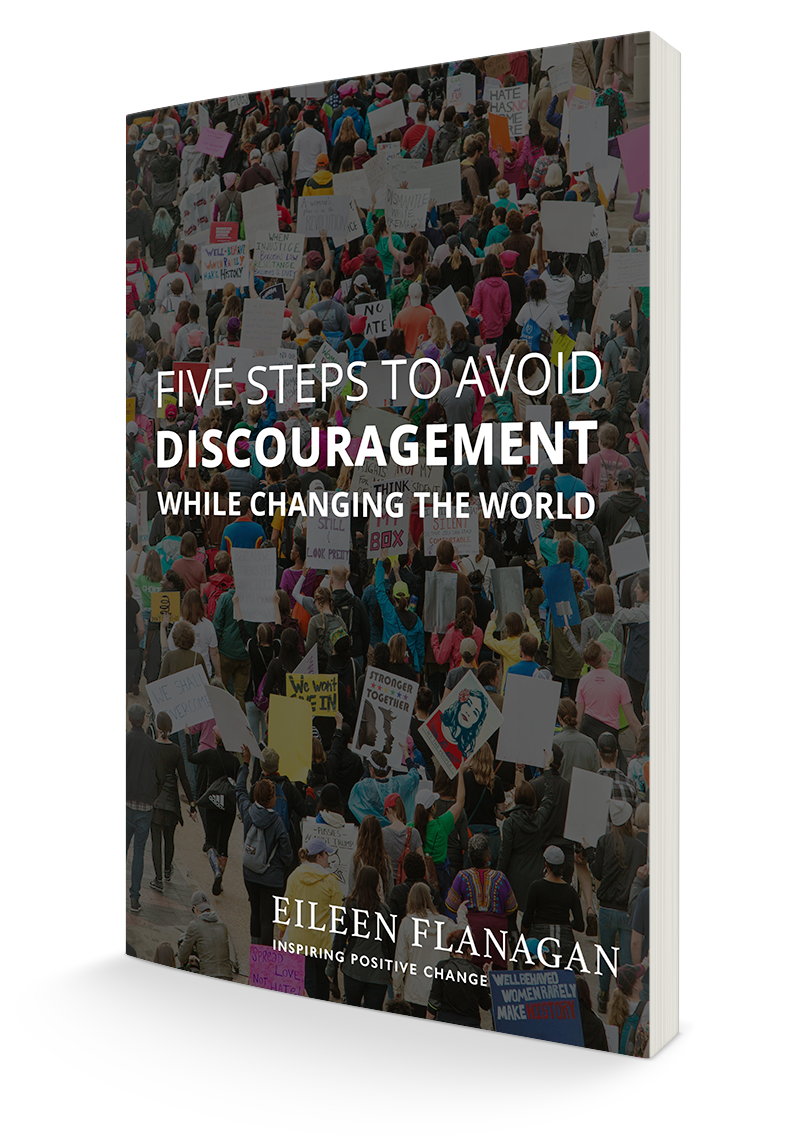I have two schools of thought when it comes to work and money. One is that I am called to do certain work and how much money I make at it is irrelevant. I don’t buy the belief that our value equals our net worth. I don’t buy the belief that well-paid work is inherently more valuable than low-paid work or the common assumption in some circles that a good teacher is less talented and industrious than a CEO. By the end of my senior year of college, I was clear that money wasn’t my prime motivator, and I’ve been making unconventional career choices ever since that have brought me great satisfaction, though not great wealth.
But lately I’ve been learning a different set of lessons and trying to integrate them into my worldview. I am coming to appreciate the idea of valuing one’s self and one’s work by expecting to be paid fairly for it. Over the years, I’ve been part of certain circles where being paid poorly is almost a badge of honor, where it is assumed that a teacher must be morally superior to a CEO, where exploiting people is alright, as long as it’s for a cause. I’m coming to realize that this approach isn’t right either.
Partly I may be reacting to the activist martyrdom complex Michael Learner described in Surplus Powerlessness (an interesting book about why certain people feel more powerless than they really are). For women, it may have to do with internalized sexism. In February I attended a workshop on pay negotiation during a conference for women at Duke. It was striking how many accomplished women had trouble asking for money for themselves, though one noted that she could negotiate a million dollar deal for a client, no problem. As I negotiate pay for speaking engagements, I’m facing this hurdle in myself, compounded with the Quaker assumption that if you are following a leading, you don’t need to be paid—though a person following a leading still presumably needs to pay bills, for which money comes in quite handy.
My writer friends struggle with this issue a lot. Many of them have made the unconventional choices, followed their callings, yet still struggle to make their callings sustainable. They know that money isn’t everything, and that money isn’t irrelevant either. A few have figured it out, finding ways to do meaningful work for compensation that shows a value for their work and allows them to keep doing it. One of them recently shared her story with a group of other writers, and it seemed really helpful—inspiring, even.
I have the sense that there is a balanced approach to this that I am still trying to figure out. There is a way to value our selves and trust God’s abundance without promoting materialism. There are ways to earn money that don’t exploit others or require being exploited, and there are ways of spending money that support things like sustainable agriculture, rather than unsustainable consumption. I think part of the difficulty in finding the balance comes from the fact that people are embarrassed to talk about money openly. It seems that hearing each others struggles with these issues might be helpful.



Hmm. I think most of us live in a reality where we absolutely must think about getting paid, but I don’t really think teachers and people in similar income brackets are poorly paid. I’m a teacher and I was a similarly paid social worker before teaching and while I’ll never have investments or those nice emergency funds with six months of savings in them or peace of mind about medical bills and college on this income, when you look at most of the U.S., it is stlll upper middle class (seeing as how we are two teachers in my household), though the popular culture makes it feel like it isn’t. And when you look at the world at large, it is insanely wealthy. I think sometimes our perceptions about how much money we need are out of whack. I’d like to have enough money to not have to work full-time so I could be with my children, and i have yearned painfully for that since they were babies, but I know I probably am no more worthy of that luxury that all the other people who have to leave their babies every day to go earn a living.
See how rich you are! globalrichlist.com
Hi Eileen,
This is an interesting post. Often people following their hearts and leadings need to do "other things" to pay the bills, from Paul’s tent making to New York actors working as waiters on the side to writers earning extra funds in the factory or taking a year to work, then a year to write to dancers teaching preschoolers on the side. It comes down to integrity in the sense of getting one’s whole life organized around God’s priorities, which carries with it humility–being willing to work at MacDonald’s if that’s what it takes–and a commitment to simplicity.
We’ve probably all encountered some well-meaning person who senses a leading and turns it into "I can throw myself off the top of this tower and God’s angels will catch me before I fall." Those people can easily become discouraged when they can’t follow their leading on their own terms rather than working through the obstacles in their paths. Part of following the leading–perhaps the most important part–is the journey.
Thanks for the responses. It’s true that most of the people reading this blog are extremely well paid relative to the rest of the world, and that it’s important not to forget that. My point was more about fairness than envy. I don’t know what kind of teacher you are, LSM, but I teach part time in a university system that is notorious for keeping costs down by hiring part-timers. (2/3 of our faculty are part-time). We have many people who work essentially full-time at half of what they would be paid if they were officially full-time. At our university, many of those people are artists in different disciplines who teach to support their primary calling, but they have to teach more an more because they are paid so little per hour. I think part of what I’m grappling with is the boundary between greed and justice. I believe in humility, but historically those who are ripping off others often counsel them to be humble, which makes me a little suspicious of the word. I could say a lot more, but the family is waiting, and I gotta run for now. Keep the comments coming!
Eileen,
I agree with you that the rich can preach humility and use it as a cover for social injustice. I’m more and more convinced that we safeguard all of us when we safeguard "the least of these." If people on the bottom are being paid a fair wage with fair benefits and being given a fair shake, THAT’s the tide that raises all boats, except maybe for the super rich, but I have an inkling that even they sleep better with a few milliions less in the bank but the knowledge that the peasants aren’t about to revolt.
I definitely agree with that. I’m a public school teacher and I’m in a union – AFT – fair wages and benefits are important. I also agree that college adjuncts are not treated fairly.
Eileen, I agree about the importance of fairness, but I think our ideas of what’s fair are shaped by how large a section of society we’re considering. If we have a much higher material standard of living than most people in the world, then maybe fairness is a matter of our learning to live with less, even if we know people who get paid more for doing basically what we do. I’ve believed this theoretically for a while; spending time with migrant workers has made it much more real to me.
The internalized sexism part reminded me of what my mother says about growing up in a family where women were expected to be self-effacing and subservient. She saw the unfairness of this early on; later she realized that her reaction against this unfairness made it harder for her to hear and follow the basic religious teachings about unselfishness/self-surrender. Learning to let go of her own agenda/wishes because that brought her closer to God and made a better world, and not because she was a woman and not worthy of having her own way, was difficult and important.
For me at least the calling has been to a life that includes a fair amount of basic, necessary physical work (because I want my physical needs met, and it doesn’t seem fair to put all that work onto someone else) and also time for writing, music, etc. I suspect that most people have artistic or philosophical gifts, and wish that all could have some time to cultivate them. I don’t see how that’s to happen if we don’t all pitch in on the rest of the work.
Ahhhh… a post worth some thinking and some sitting with to ponder. I *had* an adjunct faculty position and taught an on-line course that had a follow-up clinical component to it… it was a graduate level Nurse Practitioner course. I calculated my hourly pay to be $2 an hour… I simply could not continue despite the fact that I have 10 years more clinical experience than any other colleague in my city because I was trained in Philadelphia where the programs developed sooner.
Here is what I struggle with… the pay that CEOs are receiving. Health Care is what I know. The last time I checked, the CEO of Anthem health insurance was making somewhere in the 5 million dollar range. Patients are experiencing increasing out of pocket costs, Medicare cut funding to physicians by 21% this year, Patients are denied insurance because they have "pre-existing conditions"… seems broke to me.
From where I sit, annual salaries are commensurate with what we value in our society. When will consumptive consumerism be enough? When will we value our "service" professions… doctors, nurses, teachers, police officers, firemen, et. al. When will we value creativity and pay artists and writers accordingly? When will CEOs receive "bonuses" for a job that deserves reward and not simply because it is an annual event?
I love the Quaker quote, "Let your Life Speak"… I will and I may or may not be paid what I am worth, but at the end of the day, I know I might have made a difference and for me, that is bringing God’s abundance into the world 🙂
Thank you, Eileen, for your invitation to post a response. I understand your struggle. The pay scale at your university is indicative of the pervasive value system in our culture. Our current beliefs about money are fashioned around getting more for less, not around a valuable energetic exchange. Not until we learn to value our own individual Selves, as extensions of the Divine, will we truly be able to value others.
As stated in my own blog post, we need to have more mature, less fearful dialog about money in order to realize that it is not a spiritual problem; it is a spiritual gift. In fact, the insistence that money, itself, is anti-spiritual actually points to a deeper issue of spiritual poverty. Money is a foundational agent for survival in the physical world.
Naked Prayers Blog
Post – "Money & Spirituality – Yes, They Do Mix!"
http://www.KimberlyCainBlog.com